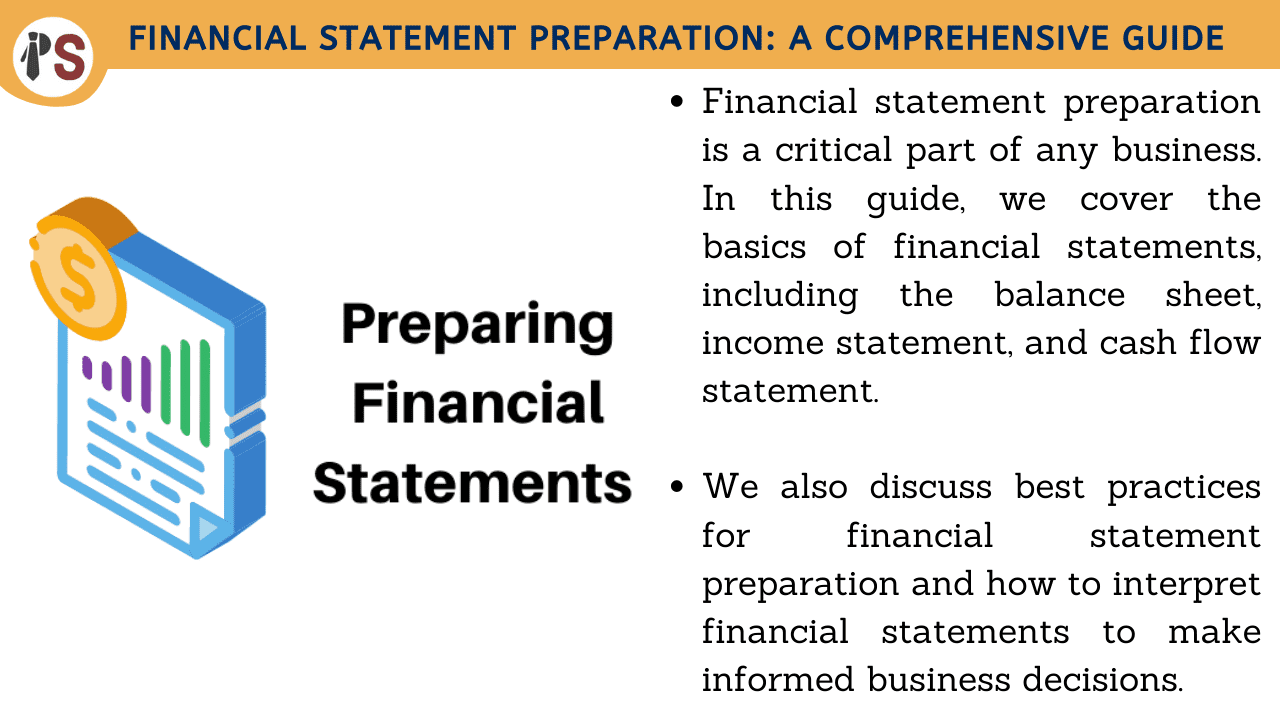
Financial statement preparation is an essential part of managing a business. Financial statements provide valuable information about the financial health of a company, and are used by investors, lenders, and other stakeholders to make important decisions about the business. In this blog post, we will discuss what financial statements are, why they are important, and what you need to know about financial statement preparation.
Financial statements are reports that show the financial performance and position of a company. They are typically prepared on a quarterly or annual basis and include a balance sheet, income statement, and statement of cash flows. The balance sheet shows a company's assets, liabilities, and equity at a specific point in time. The income statement shows a company's revenue, expenses, and net income over a specific period of time. The statement of cash flows shows the inflows and outflows of cash during a specific period of time.
Financial statements are important because they provide valuable information about a company's financial health. They are used by investors, lenders, and other stakeholders to make important decisions about the business. Investors use financial statements to evaluate the potential return on investment, while lenders use them to determine the creditworthiness of the company. In addition, financial statements are used to calculate important financial ratios, such as return on assets, debt-to-equity ratio, and current ratio, which are used to evaluate a company's financial performance.
Preparing financial statements requires a thorough understanding of accounting principles and practices. It is important to keep accurate records of all financial transactions and ensure that they are properly classified and recorded in the company's accounting system. In addition, financial statements must be prepared in accordance with generally accepted accounting principles (GAAP) or international financial reporting standards (IFRS) to ensure that they are accurate and reliable.
When preparing financial statements, it is important to ensure that they are presented in a clear and concise manner. This includes providing detailed notes and explanations for any unusual or significant items, as well as using charts and graphs to illustrate important trends and patterns. It is also important to ensure that financial statements are free from errors and inconsistencies.
To ensure that financial statements are accurate, reliable, and easy to understand, it is important to follow best practices for financial statement preparation. These include:
Maintaining accurate records of all financial transactions
Ensuring that financial transactions are properly classified and recorded in the accounting system
Preparing financial statements in accordance with GAAP or IFRS
Providing detailed notes and explanations for any unusual or significant items
Using charts and graphs to illustrate important trends and patterns
Ensuring that financial statements are free from errors and inconsistencies
Having financial statements reviewed by an independent auditor to ensure accuracy and reliability.
In conclusion, financial statement preparation is an important part of managing a business. Financial statements provide valuable information about a company's financial health and are used by investors, lenders, and other stakeholders to make important decisions about the business. To ensure that financial statements are accurate, reliable, and easy to understand, it is important to follow best practices for financial statement preparation.
At Professional Saathi, we offer a range of business consultancy services that help businesses improve their performance, achieve growth, and overcome challenges.
Copyright 2026 © Created By KTPG PROFESSIONAL SAATHI CORPORATE CONSULTANT PRIVATE LIMITED, All Rights Reserved.
Leave Your Comment